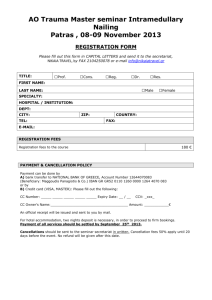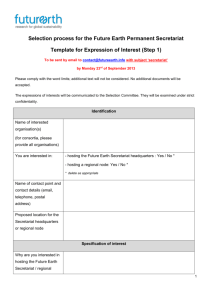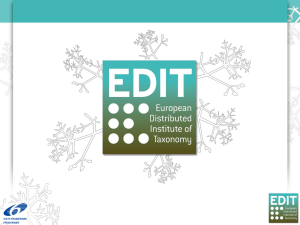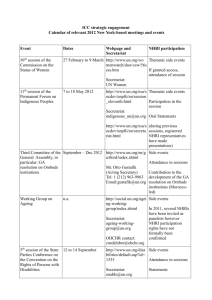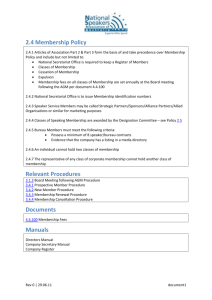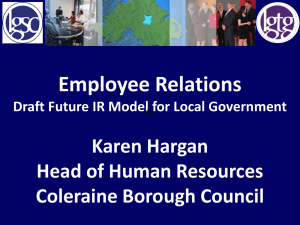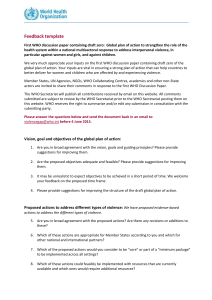What is a systematic review? - International Initiative for Impact
advertisement
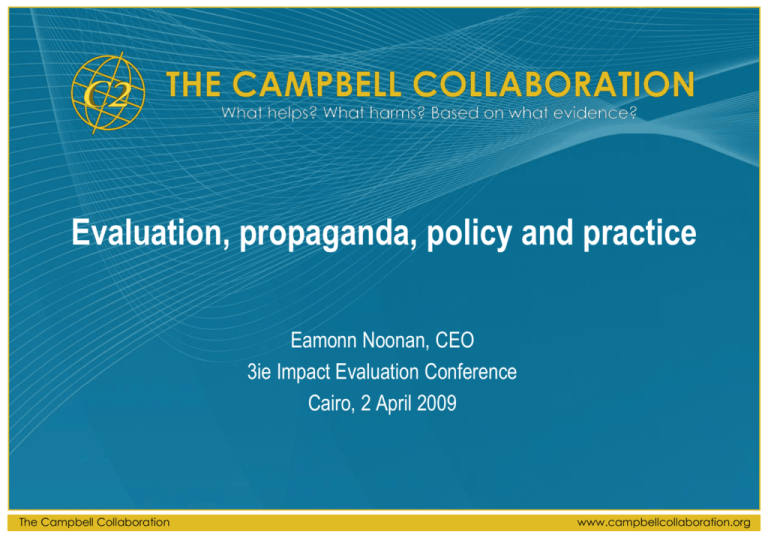
Evaluation, propaganda, policy and practice Eamonn Noonan, CEO 3ie Impact Evaluation Conference Cairo, 2 April 2009 The Campbell Collaboration www.campbellcollaboration.org “The question we ask today is not whether our government is too big or too small, but whether it works” – Barack Obama • Campbell’s goal: to promote evidence-based policy and practice by creating a basis for better decisions • A voluntary international research network • Producing systematic reviews in three broad areas • Welfare, justice, education The International Secretariat www.campbellcollaboration.org Named in honour of Donald T. Campbell “Modern nations should be ready for an experimental approach to social reform, an approach in which we try out new programs designed to cure specific problems, in which we learn whether or not these programs are effective, and in which we retain, imitate, modify or discard them on the basis of their effectiveness on the multiple imperfect criteria available.” The International Secretariat www.campbellcollaboration.org Four cardinal points: • The social determinants of health • The impact of inequality • The knowledge tsunami • The evidence gap The International Secretariat www.campbellcollaboration.org What is a systematic review? • Sums up the best available research on a given subject • by synthesising results from many studies • Clear quality criteria apply to which studies can be included • and how the results of different studies can be combined • A protocol sets out the procedure in advance • also to allow replication and updating • Peer review by substantive and methodological experts The International Secretariat www.campbellcollaboration.org Some barriers • Dearth of of primary empirical studies • Communicating research findings • Engaging decision makers • Shifting the budgetary parameters The International Secretariat www.campbellcollaboration.org There are challenges in every direction … • Universities and Research centres • bodies that fund research • Researchers / Evaluators • Systematic Reviewers • Practitioners • bodies that fund and implement (new) social interventions • bodies that stipulate and fund evaluation of programmes • Policymakers / Governments The International Secretariat www.campbellcollaboration.org Challenges for Universities and Research centres • Focus more on policy-relevant issues • Produce more primary studies of an empirical nature, with good standards • Produce more systematic reviews, with better synthesis methods. • Train more in the methodology (it’s not rocket science). • Give structured consideration to social, economic and political contexts, before and after the completion of a given review … for bodies that fund research • Boost secondary research and empirical, quantitative studies The International Secretariat www.campbellcollaboration.org Challenges for Researchers and Evaluators • Get more people involved in systematic reviews • Build competence in conducting systematic reviews • Give recognition for research synthesis Challenges for Systematic Reviewers • Give structured consideration to social, economic and political contexts, before and after the completion of a review • Explain yourselves better (jargon alert) The International Secretariat www.campbellcollaboration.org Challenges for Practitioners • Build infrastructures giving access to the latest research on specific issues • Build dialogue to inform the review process … for bodies that fund and implement (new) social interventions • Provide for experiment in the roll out of interventions … for bodies that stipulate and fund evaluation of programmes • Embrace better standards in evaluation • ”Organised distrust gives trustworthy reports.” The International Secretariat www.campbellcollaboration.org Challenges for Policymakers/Governments • Engage with scientific approaches to evidence • Build dialogue to identify “burning questions” • Recognise the essential merit of independent research • Do not commission reports that are explicitly or implicitly expected to confirm the wisdom of existing policy and practice • Accept that research may challenge rather than confirm a given policy • Mainstream a review of evidence in the funding cycle • Amend the relevant financial regulations to stipulate this The International Secretariat www.campbellcollaboration.org Challenges for everybody: Provide more and better opportunities for direct dialogue between researchers, end users and policy makers. The International Secretariat www.campbellcollaboration.org Some of our plenary speakers: • Jonas Gahr Støre, Foreign Minister of Norway • Richard Horton, Editor-in-chief of The Lancet Better evidence for a better world • Hans Rosling, Karolinska Institute, Sweden Towards an evidence-based world view • Jonathan Shepherd, University of Cardiff Public Health Contributions to Violence Prevention • Howard White, International Initiative for Impact Evaluation, Cairo Communicating evidence to policy makers The International Secretariat www.campbellcollaboration.org The Campbell Collaboration P.O. Box 7004 St. Olavs plass 0130 Oslo, Norway E-mail: info@c2admin.org http://www.campbellcollaboration.org The Campbell Collaboration www.campbellcollaboration.org
